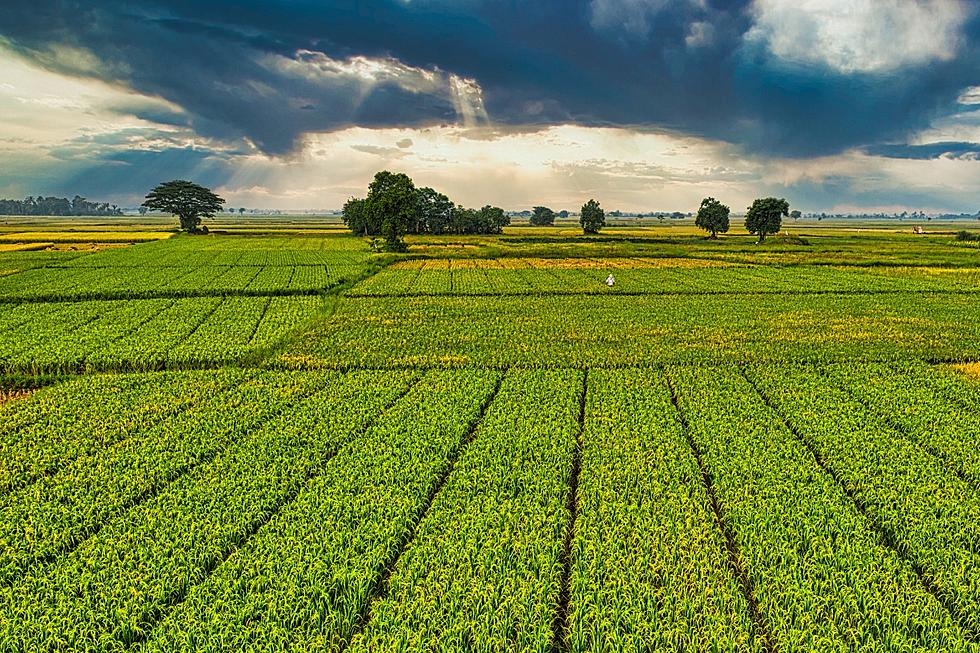
Feds Are Paying $2 Million to Selected Farmers to Grow in WA, OR
The United States Department of Agriculture has announced a disbursement of over two million dollars to selected rural farmers and food producers in Washington state and Oregon.
The grants are part of the Biden-Harris administration's pledge to create more ways to tamper down the sky-high cost of food, due to existing bad food supply chains and because of some rural growers' lack of access to additional capital resources (money).

Liaisons for the grant partnership include Washington state U.S. Senators Patty Murray and Maria Cantwell, and Oregon's Ron Wyden and Jeff Merkely who are working in collaboration with their respective Representatives in Congress. In Washington state those Representatives include Pramila Jayapal, Rick Larsen, Dan Newhouse, Kim Schrier, and Marilyn Strickland, and in Oregon, Representatives Earl Blumenauer, Cliff Bentz, Lori Chavez-DeRemer, and Andrea Salinas, are helping the selected rural farmers get connected with $2,018, 812 in grant funding.
Here is a list of the USDA Value-Added Producer Grants Disbursed to Rural Agricultural Businesses in OR and WA (click here to see the full national list).
In OREGON, six businesses will receive a combined grant total of $631,511.
$8,500: Statera Cellars is receiving money to work with Pinnacle Plan Writing on two important plans: a 5-year business plan and a 3-year financial plan. These plans will help the farm grow and reach new markets. Pinnacle Plan Writing will study and estimate how much money the farm can make in the future by looking at different markets. Together, they're making a roadmap for the farm's success.
$38,308: Coleman Vineyard is getting money to increase their revenue by selling Pinot Gris in cans, to stores. The funds will be used to turn grapes into wine and design the product.
$44,803: Jill Myatt dba Feather Goat Farm is getting paid to process their chicken and rabbit meat in their own place, make better labels and packaging, ensure safe handling and storage of food, and do more marketing for their products.
$49,900: Premium Growers, a hazelnut farm, is getting money to focus on the chocolate-coated side of their farm to expand to the Asian market. This includes processing, roasting, and making three new flavors of chocolate-coated hazelnuts, with the help of their partner, Dragonberry Produce Distributors.
$240,000: Infinite Tree is getting some money to hire more people to sell and market their products, make their website and marketing materials look fresh, and get nice packaging for their products. With this money, they can keep growing in the market for organic hemp seeds and seedlings.
$250,000: Myrtle Creek Farm will use this money to sell more of their products in different ways via stores and directly to customers. The plan includes tasks like advertising, handling the grains they use, and managing the costs of processing. This project is also great because it will make seven new jobs and keep one job in the local community. So, Myrtle Creek Farm is not only growing but also helping the community by creating jobs.

In Washington state, ten businesses will receive grants totaling $1,384,301.
$15,000: True North Meats is getting paid to increase the value of their locally raised and processed meat by creating marketing content and services and to build a website.
$48,037: Midnights Farm is getting paid to reach more people and different markets (wholesale and individuals). The grant and matching funds will cover the costs of processing, marketing, and administrative tasks.
$49,000: Willow Brook Farm is getting money to turn raw ingredients (hot peppers and chilis) into hot sauces. The grant and matching funds will cover the costs of processing labor, supplies, and advertising.
$49,994: River Valley Organics (George Otte's family orchard) is getting money to create better packaging, market their fruit products better, create a better website, acquire packaging materials, and keep fruit fresh during transport.
$75,000: US Rake Force is getting paid to build a biochar soil amendment (fine-grained charcoal made from a slow-burning process of plant matter, wood, and agricultural by-products in a low-oxygen pyrolysis process) business. They will use the money to build a business plan to detail how they can and will create a successful biochar soil amendment business. This includes how they will market the business and what the overall business strategy will be.
$147,270: Clean Food Farm (Larry Bailey) is getting money to switch his business from U-pick to selling to retail stores. The grant and matching funds will be used for processing, marketing, and administrative costs.
$250,000: Tapenade Inc. (Wilridge Distillery) is getting money to expand the market for their distillery products.
$250,000: Lesedi Farm is getting money to turn fava beans into pesto sauce and expand the product to new markets. The project covers the costs of labor for processing, packaging, marketing, and delivering the sauce.
$250,000: Pink Moon Farm is getting paid to turn their raw vegetables (carrots, heirloom tomatoes, and kale) into products for sale locally. The grant and matching funds will cover the costs of processing labor, packaging, supplies, marketing, and distribution expenses.
$250,000: Osprey Hill Farm is getting paid to expand the market of their local, corn-free, soy-free, and GMO-free turkeys. The funds will cover processing, marketing, and administration of their expansion plans.
Report a typo or correction
Submit a Community Event here
Got a news tip? Email us here
NEXT TO READ:
This Pretty Small Town in WA Is The Worst Place to Live in the State
- The 1 Question About Oregon That Stumped Everybody on Jeopardy
- Biggest Red Flags About Living in Washington State
The 8 Biggest Washington State Snowstorms
[carbongallery id=""341:253668"]
The Definitive List of The Oddest, Strangest and Downright Filthy Town Names In Every State
Gallery Credit: Rob Carroll



